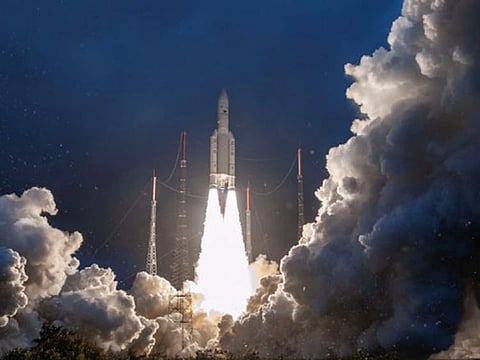COVID-19: India needs its scientific temper back
COVID-19 crisis must bring the realisation that scientific knowledge can’t be compromised

Yoga entrepreneur and a prominent supporter of the present dispensation in India, Ramdev’s comments about the modern medical science and the efficacy of COVID-19 vaccines have led to a major controversy as Indian Medical Association has taken strong exception to it.
In one of my recent columns, I had explained how India’s newfound obsession with pseudoscience has contributed to the ongoing serious COVID-19 crisis in the country.
Sadly many in India have not learnt from the mistakes of not adhering to science at the time of the pandemic. Several of its political, social, and religious leaders are still engaged in popularising myths and superstitious beliefs in the name of Vedic era science and traditional medicines. The scientific temper, which the country has constitutionally promised to develop, is under a serious assault.
India is an old civilisation but a new country. Under two hundred years of colonial rule, the subcontinent was a primary supplier of raw materials for the British industries. Before Independence, Indians were not even allowed to produce salt and clothes.
Thankfully, Jawaharlal Nehru, the first Prime Minister of India, was a student of science from Cambridge. He had a belief in the importance of science, not only for the industrialisation and eradication of poverty in India but also for the nation-building in the newly independent country.
Nehru believed that the development of science and promotion of scientific temper is the only way to build a new India even before Independence.
In his book, Discovery of India, which he had written while in prison, he writes: “It is the scientific approach, the adventurous and yet critical temper of science, the search for truth and new knowledge, the refusal to accept anything without testing and trial, the capacity to change previous conclusions in the face of new evidence, the reliance on observed fact and not on preconceived theory, the hard discipline of the mind — all this is necessary, not merely for the applications of science but for life itself and the solution of its many problems.”
After the independence, one of Nehru’s first acts as the Prime Minister was to draft a science policy resolution. In his two-pronged strategy to advance science in the country, Nehru prioritised building world-class institutions for scientific research like the 5 Indian Institutes of Technology and promoted some of the most outstanding scientists of that generation, like C.V. Raman, Vikram Sarabhai, and Homi J Bhabha.
A country, which was scorned in the West made significant progress in science and technology under 16 years of Nehru’s uninterrupted premiership. After Nehru, India as a country and its political leadership publicly committed to scientific progress and promoted scientific inquiry.
A glorious tradition in science
India stunned the world in showing its nuclear power by testing a fission devise in 1974, which it termed as ‘peaceful nuclear explosion’. The year after, India launched its first satellite, Aryabhata, into space. In 1983, India established its scientific base station in Antarctica, and in 1984, an Indian went to space.
In 1991, India built its supercomputer. In 1977, India was declared free from smallpox, and in 2014, free from polio. With the arrival of the 21st Century, an increasingly ‘scientific’ India emerged as a global power in services, from IT to Health Sector.
However, under a nationalist-populist government since 2014, India has started moving away from the Nehruvian priority on scientific approach and critical temper of science. Instead of trying to break new frontiers in scientific research, scientists are being compelled to research finding super-medicinal values in bovine urine and from holy basil leaves etc.
The priority on myths and pseudoscience helps to promote majoritarian political agenda, but it has created serious doubts over India’s commitment to scientific progress and the independence of its scientists to pursue the critical scientific inquiry.
In 2014, when political leadership claimed the existence of India’s expertise on cosmetic surgery and genetic science in ancient times, no Indian scientist came forward to correct it. Indian Medical Association, which has criticised Ramdev’s remarks against modern medicine, failed to take India’s Health Minister to task when he openly endorsed Ramdev-owned company product as a cure for COVID-19.
Unsubstantiated claims
In 2014, India’s present education minister claimed that India conducted nuclear tests more than 100,000 years ago.
Instead of protecting science from politics, many Indian scientists have started making irrational claims that ancient India had mastered stem cell research, invented atomic theory, and even had 24 types of aircraft. In the Indian Science Congress deliberations a geologist claimed that a deity discovered dinosaurs. A scientist even went to the extent of asserting that both Newton and Einstein were wrong.
The ongoing race among nationalist political leaders, religious entrepreneurs, and a section of scientists and academics to make preposterous claims and assertions to glorify myth and popularise pseudoscience has led to a huge setback for India’s scientific credo.
The country can’t aspire to be a global power and hope to claim the standing it deserves in the 21st Century by believing in myths and undermining modern science and technology.
If nothing else, the ongoing COVID-19 crisis must bring the realisation to the country’s ruling establishment that the Nehruvian scientific approach and search for truth and new knowledge can’t be compromised at any time for narrow political gains.







